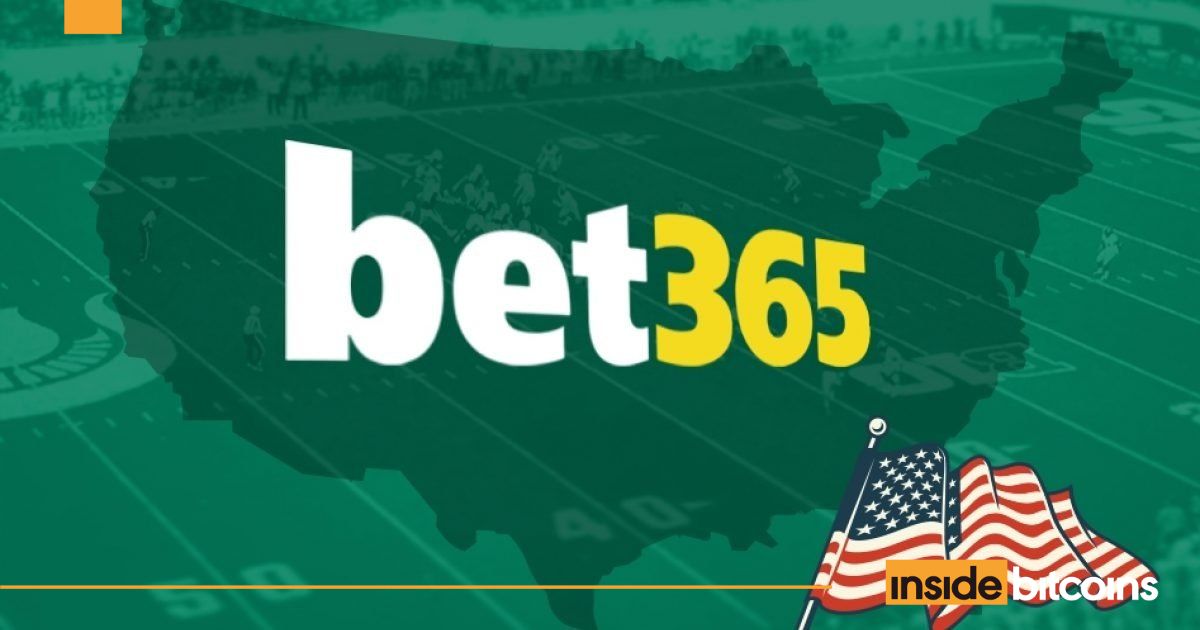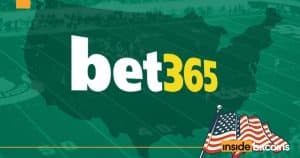The American sports betting landscape witnessed a significant development as Bet365, the British gambling powerhouse, officially joined the Sports Betting Alliance as its fifth founding member. This strategic move represents more than just another company joining a trade organization—it signals the maturation of an industry that’s rapidly consolidating its lobbying power to shape favorable regulatory conditions across the United States.
The British Giant’s American Journey
Bet365’s path to American prominence began in 2000 when Denise Coates founded the company in a portable building in Stoke-on-Trent. What started as a family business borrowing £15 million against their betting shop estate has evolved into a global gambling empire with revenues exceeding £2.8 billion as of 2021. The Coates family’s transformation of their traditional brick-and-mortar betting shops into a digital powerhouse mirrors the broader evolution of the gambling industry over the past two decades.
The company’s American expansion strategy has been methodical yet aggressive. Currently operational in 13 states, Bet365 has strategically targeted markets where it can leverage its technological expertise and deep pockets. The operator’s recent launches in Tennessee and Illinois in March 2025 demonstrated its commitment to capturing market share in key battleground states. Tennessee, with its unique handle-based tax structure of 1.85%, presents an interesting case study for operators, as it’s the only state that taxes based on total betting volume rather than revenue.
Illinois represents a particularly challenging market for newcomers like Bet365, especially given the state’s recently implemented tiered tax structure that can reach up to 40% plus additional per-wager fees. The Prairie State’s sports betting market generated significant controversy when lawmakers introduced a 25-cent tax on the first 20 million wagers and a 50-cent tax thereafter, directly impacting operator profitability.
Strategic Alliance Formation and Industry Consolidation
Jeremy Kudon, the Sports Betting Alliance president and partner at Orrick, Herrington & Sutcliffe, has been instrumental in building this coalition of industry heavyweights. Kudon, who earned his law degree from Boston University in 2000, has established himself as one of the foremost lobbyists in the gambling industry, with a track record of helping companies navigate complex state-level legislation across 44 states.
The SBA’s formation in 2021 brought together the industry’s most dominant players: DraftKings, FanDuel, BetMGM, and Fanatics. Each member brings distinct strengths to the coalition. DraftKings, founded in 2012 by Jason Robins, Matthew Kalish, and Paul Liberman, initially operated as a daily fantasy sports provider before pivoting to sports betting following the 2018 Supreme Court decision. The company’s transformation from a startup operating out of Liberman’s house to a publicly traded entity through a reverse merger with SBTech in 2020 exemplifies the rapid evolution of the American betting landscape.
FanDuel’s journey began in 2009 when Nigel Eccles and his co-founders identified a gap in the daily fantasy sports market. The Edinburgh-based company established its American headquarters in New York City and grew to surpass one million registered users by 2012. The company’s strategic partnership deals, including becoming the official sports betting partner of the NFL in 2020, have solidified its position as a market leader.
BetMGM represents a different model entirely—a joint venture between MGM Resorts International and Entain Holdings that launched in 2018. This partnership combines MGM’s extensive land-based casino network with Entain’s sophisticated technology platform, creating a hybrid approach that leverages both retail and digital channels. The company reported $2.1 billion in revenue for 2024, demonstrating the effectiveness of this dual-channel strategy.
Fanatics entered the sports betting arena through a different route, acquiring PointsBet’s US operations for $225 million in 2024. This acquisition instantly provided Fanatics access to 95% of the addressable online sports betting market and included the transfer of over 200 PointsBet employees to accelerate their growth plans.
The Tax Battle Intensifies Across State Lines
The alliance’s primary battlefield centers on state taxation policies, where the stakes couldn’t be higher for operator profitability. The current landscape reveals dramatic variations in tax approaches across different jurisdictions. Delaware and Rhode Island impose crushing 50-51% tax rates, while Nevada maintains a modest 6.75% rate.
Maryland recently joined the states increasing their tax burden on operators, raising mobile betting taxes from 15% to 20% under House Bill 352. Governor Wes Moore initially proposed an even steeper increase to 30% but settled on the compromise rate to maintain competitiveness with neighboring states. This adjustment aligned Maryland with Ohio and Illinois, both of which maintain 20% tax rates on mobile sports betting revenue.
Louisiana’s tax evolution represents one of the most dramatic shifts in 2025. The state legislature approved House Bill 639, sponsored by Representative Neil Riser, increasing the online sports betting tax rate from 15% to 21.5%. Interestingly, Riser initially sought a much more aggressive 32.5% rate before settling on the compromise figure. The legislation includes a novel provision directing 25% of tax revenues to the Supporting Programs, Opportunities, Resources and Teams (SPORT) Fund, which will distribute approximately $1.8 million annually to each of Louisiana’s 11 public Division I universities.
The Illinois tax structure presents perhaps the most complex challenge for operators. The state implements a tiered system where taxes can range from 20% to 40% of gross gaming revenue, plus additional per-wager fees of 25 to 50 cents. Cook County and Chicago impose an additional 2% tax burden, creating effective rates that can exceed 42% in certain scenarios.
The Black Market Challenge and Regulatory Response
The alliance’s concerns about tax-driven migration to unregulated markets aren’t merely theoretical. Recent research using artificial intelligence to track offshore and onshore sportsbook activity revealed that unregulated states show twice the interest in offshore brands compared to regulated markets. Bovada remains the dominant offshore operator, particularly in states like California where legal options remain unavailable, and Florida where only one regulated sportsbook operates.
Michigan’s Gaming Control Board has taken proactive steps to combat gray market operators, sending cease-and-desist letters to PredictionStrike, Stake.us, and VGW LuckyLand Inc., which operates sweepstakes casinos including Chumba Casino and LuckyLand Slots. The board’s strategy focuses on pragmatic victories rather than perfect solutions, recognizing that state-level enforcement has inherent limitations.
A YouGov survey commissioned by the Betting and Gaming Council found that 65% of regular punters agreed that increased taxes would drive customers to unregulated betting sites that don’t pay any taxes. This data supports the SBA’s core argument that excessive taxation creates a self-defeating cycle that ultimately reduces total tax revenue while pushing consumers toward dangerous unregulated alternatives.
Federal Regulatory Pressures and Industry Response
The industry faces additional pressure from federal lawmakers seeking to impose nationwide standards. The SAFE Bet Act, proposed by Senator Richard Blumenthal and Representative Paul Tonko, would establish federal oversight requiring all 38 states with legal sports betting to undergo new approval processes with the U.S. Department of Justice. The legislation would ban advertising between 8 a.m. and 10 p.m., eliminate bonus bet offerings, and require operators to set mandatory spending limits for consumers.
Industry lobbyists, including the American Gaming Association’s Chris Cylke, argue that such federal intervention represents “a slap in the face to state legislatures and gaming regulators who have dedicated countless time and resources to developing thoughtful frameworks unique to their jurisdictions”. This tension between state and federal authority adds another layer of complexity to the regulatory environment the SBA must navigate.
Market Dynamics and Competitive Positioning
The competitive landscape among SBA members reveals interesting market dynamics. DraftKings briefly overtook FanDuel as the market share leader in 2023, capturing approximately 31% of online gambling gross gaming revenue compared to FanDuel’s 30%. This shift occurred largely due to DraftKings’ acquisition of Golden Nugget Online Gaming in May 2022, which significantly expanded their casino gaming capabilities.
BetMGM maintains its position as the third-largest operator with a 14% gross gaming revenue market share across its active states. The company’s strategy focuses heavily on player acquisition, with average monthly active users increasing 14% to 946,000 in 2024. However, BetMGM continues to operate at a loss, reporting negative EBITDA of $244 million in 2024, though the company projects profitability in 2025.
Tennessee’s sports betting market exemplifies the growth potential that attracts operators like Bet365. The state recorded $463.6 million in handle during April 2025, representing a 21.7% increase compared to the same period in 2024. With 11 online platforms now operational, including major national brands and newer entrants like Bet365, the market demonstrates both the opportunities and intensifying competition facing operators.
Future Market Expansion and Strategic Implications
Missouri represents the next major prize for sports betting operators, with online and in-person wagering scheduled to launch December 1, 2025. The state will allow up to 14 mobile sportsbooks, with six licenses reserved for casino operators, six for professional sports teams, and two “untethered” licenses likely to attract DraftKings and FanDuel. This structure reflects the evolving partnership models between traditional gaming entities and pure-play digital operators.
California remains the ultimate prize, representing the largest potential market in the United States. Recent discussions between the SBA and tribal representatives at the Indian Gaming Tradeshow & Convention explored frameworks for legal sports betting, which include crypto sports betting, though these conversations generated controversy when details were prematurely reported. The proposed structure would involve creating a single tribal entity to contract with national operators, though tribal leaders emphasized that no agreement had been reached and criticized the SBA for allowing media coverage of private discussions.
The Sale Speculation Surrounding Bet365
Adding intrigue to Bet365’s SBA membership, industry reports suggest the Coates family is considering strategic options including a potential sale valued at £9 billion. There have been internal discussions about various possibilities, including full sale, partial sale to private equity, or a U.S. stock market listing. Recent strategic moves, including Bet365’s withdrawal from the Chinese market in March 2025, suggest the company may be positioning itself for significant changes.
Industry analysts have noted that Bet365’s exit from China appeared to be “clearing out their house for something bigger”. This speculation adds uncertainty to the company’s long-term U.S. strategy, though current expansion plans suggest any potential transaction wouldn’t immediately impact American operations.
The Sports Betting Alliance’s expansion to include Bet365 represents a maturing industry’s recognition that collective action provides the best defense against adverse regulatory developments. As states continue implementing higher tax rates and federal lawmakers propose additional restrictions, the alliance’s role becomes increasingly critical for protecting operator interests while promoting responsible gambling practices in regulated markets.


